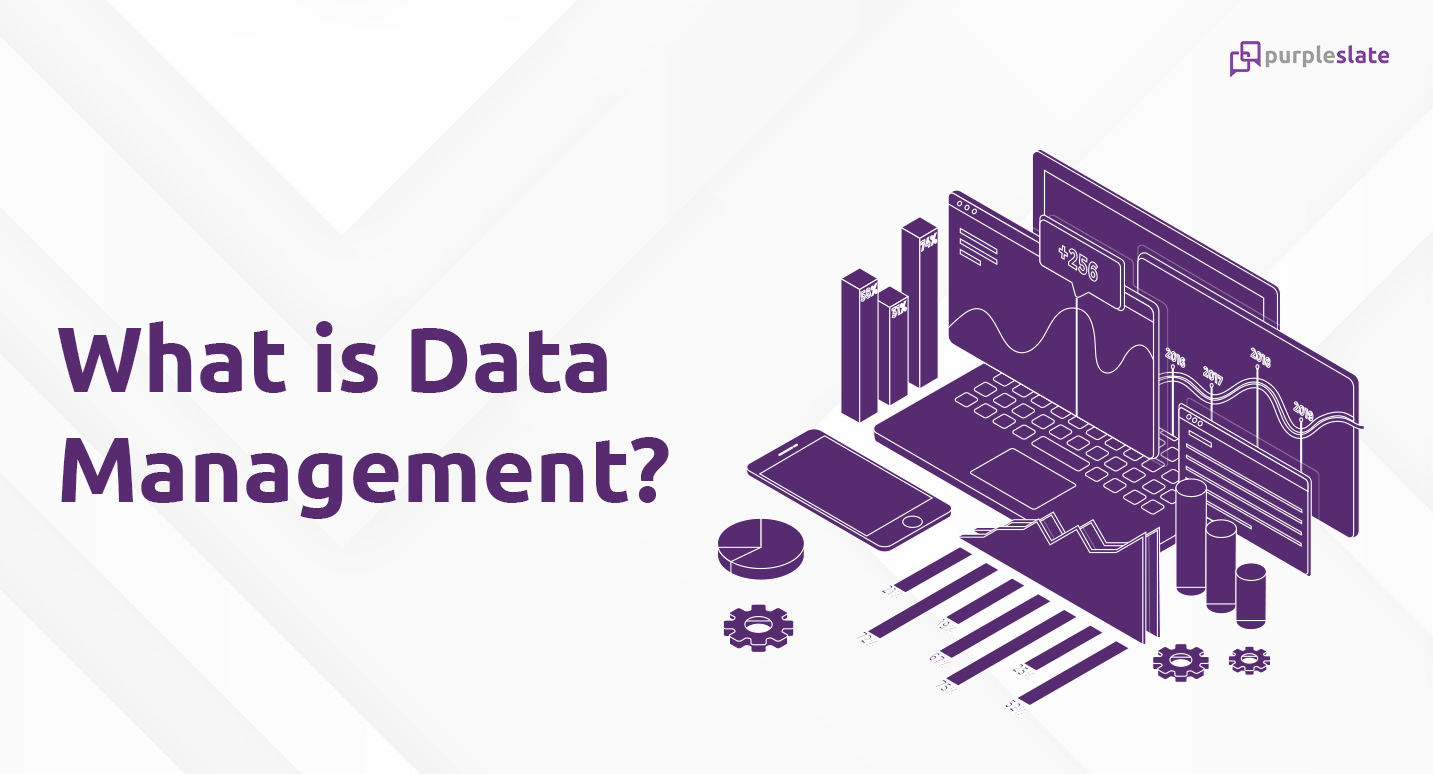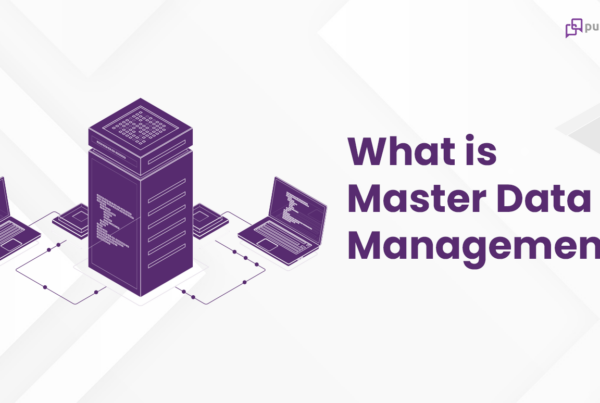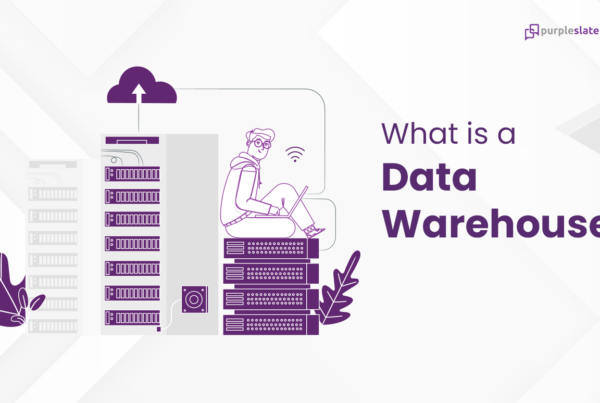
Introduction
Data management is the process of consuming, refining, procuring, and keeping the data of an organization in a place where it is then used properly for the calculated decisions to be made to ensure the progress of the company. The use of data in companies has been on the rise recently and data management has become very important as companies have to manage the data they use daily to ensure maximum efficiency in the company.
Data management is a mix of various activities whose purpose is to ensure that the data being used in an organization are in their best condition. Most of the data management work is usually done by the data management and IT teams working together however, there are cases where the users will have to help out in order to make sure the data meets their requirements.
There is various data management software available in the market for simplifying data management tasks. Many of these software can help your business in preparing data, making catalogues, finding specific data, and managing all the data. Check out all you need to know about data management below.
Data Management History and Evolution
Data management has a long history and has been evolving over the years to become what we have today.
Data management started in the 1960s as a concept and the people at the forefront of it all is the organization ADAPSO (Association of Data Processing Service Organizations). Back then, compute power was limited and expensive so tasks like operational reporting had a large impact on online performance. Therefore, reporting was batched and done outside business hours.
Around the 1970s when the relational database was invented, then administrators could copy data from mainframe systems into a replica that allowed them to run reports as needed. This trend has carried on till today in many relational databases available.
Even though it was progress, the challenge of being unable to have a single view of customers led to the development of a data warehouse. Data warehouses brought the advent of specialized Extract, Transform, Load (ETL) tools and administrators could then perform enterprise descriptive analysis.
From 2007 to 2017, there was a rapid change with the arrival of newer sources of data such as IoT and social media. New data stores like Hadoop file systems and NoSQL databases became prevalent as organizations refocused analysis from checking details on what happened to predictive analysis that gives insights.
Importance of Data Management
Data management is very important for any company that uses data and is the most important step in the analysis of data. With good data management, it becomes easy for employees In any organization to find reliable data for analysis and decision-making. Some of the reasons why data management is important to include:
- Increase in productivity
Data management systems will increase the productivity of your organization by reducing errors in processes. You can set policies for data usage and build trust in the data you use to make decisions in your organization. This will put your organization in a better position to respond to customer needs and market changes.
- Better efficiency
Having a business that works like a well-oiled machine is the goal of every workplace, and with data management, it can go from being a goal to a reality at work. Data management can give insights into what the business needs to focus on and spend its resources to improve.
- Reduced security risk
Many data management software has improved security features and protection that protect your organization from many forms of data theft or losses. Using strong encryption protocols, you can comply with data protection laws and prevent damage to your company.
- Better Visibility
Good data management efforts will make everyone in your organization aware of your data assets so everyone knows where to get data for their analysis. It helps your employees become more productive as they now have access to data that helps them do their jobs effectively.
- Cost-effectiveness
Data management systems help you establish processes across your organization preventing the occurrences of errors that could cost money. This means you will spend less money trying to solve problems.
Types of Data Management Functions
Some of the types of data management functions include:
Master Data Management
This involves information technology working together with businesses to maintain conformity, accuracy, accountability, and maintenance of the data owned.
Data Stewardship
Data stewardship is a group of activities that ensure the data owned by an organization is accountable, trustworthy, easy to access, safe, and able to be used.
Data Quality Management
Data quality management is used to make very specific procedures that help make sure the part of the data used for analysis and making decisions is improved on.
Data security
Data security is the enactment of keeping digital information away from anyone who isn’t supposed to have access to it, getting stolen or corrupted throughout the period it is relevant.
Data governance
Data governance is the activities done to make sure data is kept safe, private, error-free, usable and at one’s disposal. It involves all the actions taken to support data through its lifecycle
Big data management
Big data management is the coordinating and managing of big amounts of data which are generally a combination of unstructured and structured data.
Data warehousing
Data warehousing is the process of storing information in a medical control location where it can be studied for users to make conclusions and good decisions.
Data Management Best Practices
You can get the most out of data management by using the following best practices:
Define Your Business Goals: Your business goals are what will drive how you collect, store, manage, clean, and organize data in your organization. This way, you focus on data relevant for decision making, and your data management software doesn’t become unmanageable.
Minimize Duplicate Data: You should put processes that prevent duplicate data from any sources including customers or leads. Duplicate data can lead to redundancies and make it difficult to track processes.
Concentrate on data quality: The insights you get from your data management system are dependent on the data you input. So, if you input incorrect data with lots of errors, your results may not be accurate and will negatively affect your organization. It is important to spend time on your data collection process.
Give Appropriate People Access to Data: In-toeing the line between security and convenience, make sure the right people always have access to relevant data. Use logins and access controls based on employees’ positions and their job duties.
Put a Data Recovery Plan in Place: Even if we don’t want it to happen, it is important to plan for accidents by having a foolproof data recovery strategy in place. You should use cloud services that have multiple redundancies already in place to protect your data in the event of a disaster.
Benefits of Good Data Management
Some of the benefits of having a proper data management system in place include:
- Ability to use smart advertising to target customers based on their interactions and interests
- Stay compliant with regulations
- Reduced operating expenses by using only required storage and compute power
- Ability to leverage machine learning and continually improve
- Improved customer satisfaction by giving customized experiences
- Top-notch security processes for protecting assets
- Easy solution for information preservation and retrieval
Conclusion
Data is relevant in every industry today and it is far more important than ever for real-time decision-making. Today, data can set you apart from your peers and make you competitive if you’ve fully optimized your data management solution. Optimize your business operations today by getting a data management system for your organization.




